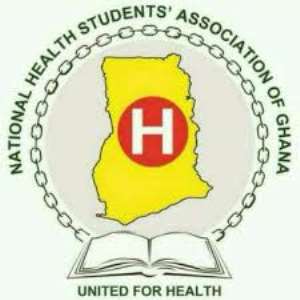
The low level of consultation on the part of government, that has characterized the all new Drone technology for improved healthcare is to blame for all the unnecessary controversies.
According to the National Health Students Association of Ghana (NAHSAG) the failure of the government, particularly, the health ministry to engage stakeholders of the health sector on the drone medical supplies, has compounded matters.
has called on the Ministry of Health to engage in broader consultation with stakeholders to ensure proper implementation of government policies on health.
They said this would ensure cross-sectoral execution of programmes and new initiatives aimed at enhancing the outcomes of the government's policies.
The called was made in a statement issued by the Association and copied to the Ghana News Agency.
The NAHSAG said it has observed with keen interest the development and matters arising from the government's decision to subscribe to the Drone Technology for Healthcare delivery.
It said it had noted and followed closely the reactions from the African Centre for Health Policy Research and Analysis, the Ghana Association of Medical Laboratory Scientists, the Ghana Medical Association, IMANI Ghana, among others within and outside the health fraternity towards the proposed Fly Zipline Drones Technology in the delivery of health services.
The NAHSAG said; 'Moving forward, we the health students and fresh graduates across the country will always welcome any action(s) of Government and other players (public policy) aimed at maintaining and improving the population's state of health.
'Nevertheless, we believe that in order to ensure proper implementation of health policies in the country, the Ministry of Health must engage in broader consultation with stakeholders to ensure cross- sectoral execution of programmes and new initiatives aimed at enhancing the outcomes of the government's policies on health.'
The Association said most importantly, there was the need for the health ministry and Ghana Health Service to ensure that available resources are allocated in accordance with the national priorities on health, adding; 'these we believe would improve access, quality and effectiveness of health services.'
It said upon reflection on the potential health and economic impact of the drone technology on the nation, noted that the demerits of the initiative outweigh its merits.
The Association said; 'Though the Parliament of Ghana has approved by a majority decision to allow the use of the drones across the country, it is still not late for the decision to be suspended whiles taking the following recommendations on how to effectively utilise the intended $12.5 million-dollar fund to revamp the healthcare system.'
It called for the improvement of the referral system by providing communication equipment (mobile phones) at each Community-Based Health Planning Services (CHPS) compound, at least a motorcycle for each CHPS compound, a tricycle, tractor ambulance, or a motorboat depending on the available medium of transport to facilitate the work of the Community Health Officers.
The Association recommended for the strengthening of the primary healthcare system by improving equity in access (geographical and financial) to basic health services, efficiency and responsiveness to client needs and to develop effective inter-sectoral collaboration.
It said the Ministry of Health should strengthen the programme through conscious efforts and supports such as; provision of solar refrigerators to all CHPS compounds for the storage of essential medicines and vaccines; provide solar lighting system and delivery beds to all CHPS compounds to help in the delivering of babies and also provide the CHPS with Personal Digital Assistants (PDAs) for data collection.
The Association commended Vice President Dr Mahammud Bawumia, Minister of Health, Mr Kwaku Agyemang Manu, the Director General of the Ghana Health Service, Dr Anthony Nsiah-Asare, and the Parliamentary Select Committee on Health for their hard work, dedication, and conscious efforts that are geared towards improving the healthcare delivery system of the county, especially in achieving the universal health coverage target of the Sustainable Development Goal 3.
---GNA




 Reintroduce Fiscal Responsibility Act to tackle election budget overrun — Osafo ...
Reintroduce Fiscal Responsibility Act to tackle election budget overrun — Osafo ...
 Flooding: Obey weather warnings – NADMO to general public
Flooding: Obey weather warnings – NADMO to general public
 Fire in NDC over boycott of Ejisu by-election
Fire in NDC over boycott of Ejisu by-election
 NDC to outdoor Prof Jane Naana Opoku-Agyemang as running mate today
NDC to outdoor Prof Jane Naana Opoku-Agyemang as running mate today
 Ejisu: CPP seeks injunction to stop April 30 by-election
Ejisu: CPP seeks injunction to stop April 30 by-election
 Dismiss ECG, GWCL, GACL bosses over losses – United Voices for Change tells gov’...
Dismiss ECG, GWCL, GACL bosses over losses – United Voices for Change tells gov’...
 Submit 2023 audited financial statements by May – Akufo-Addo order SOEs
Submit 2023 audited financial statements by May – Akufo-Addo order SOEs
 Current power outages purely due to mismanagement – Minority
Current power outages purely due to mismanagement – Minority
 ECG hoists red flag to fight Ashanti Regional Minister over arrest of General Ma...
ECG hoists red flag to fight Ashanti Regional Minister over arrest of General Ma...
 Mahama’s 24hr economy will help stabilise the cedi; it’s the best sellable polic...
Mahama’s 24hr economy will help stabilise the cedi; it’s the best sellable polic...
